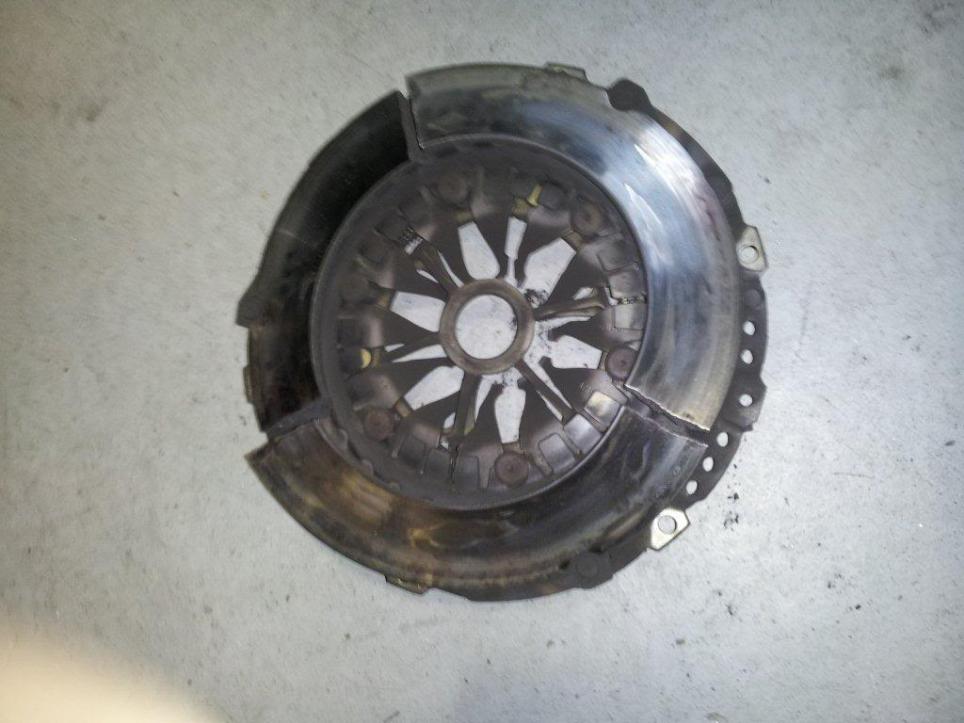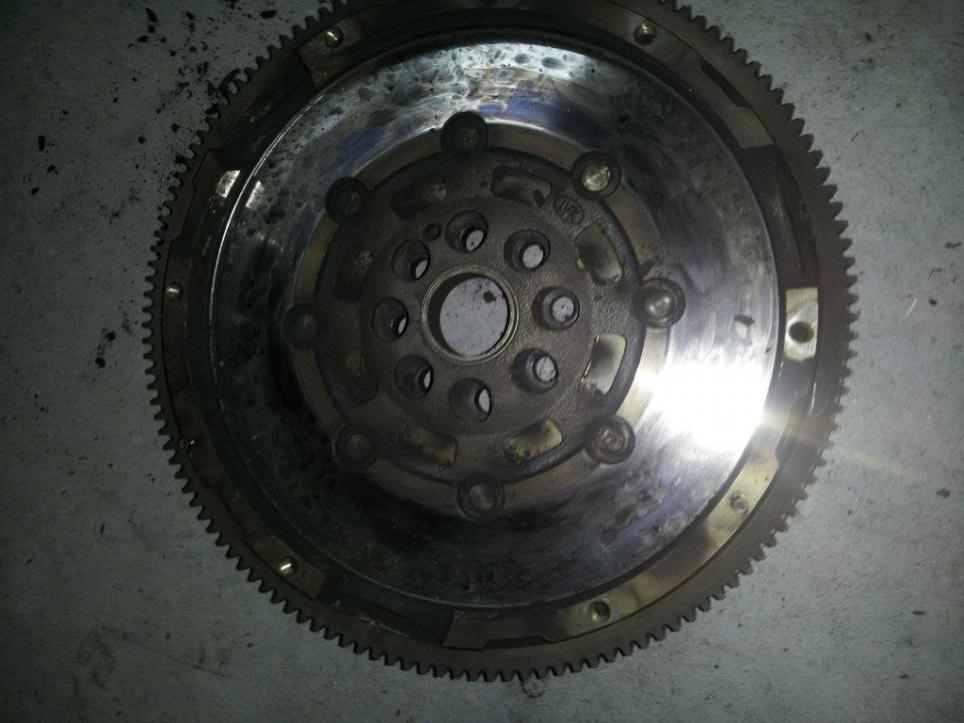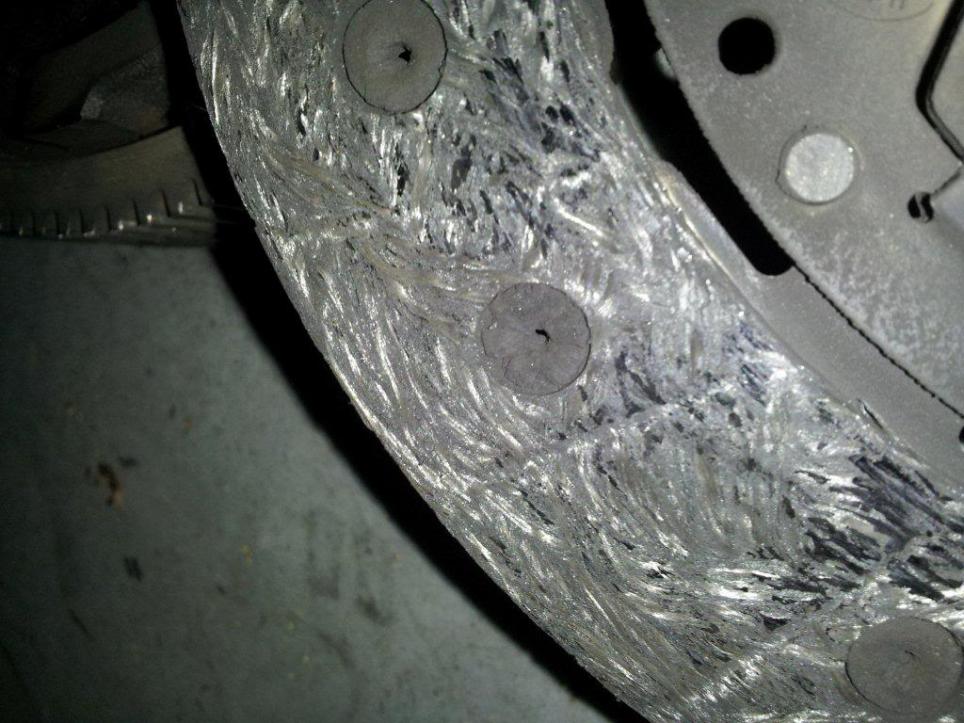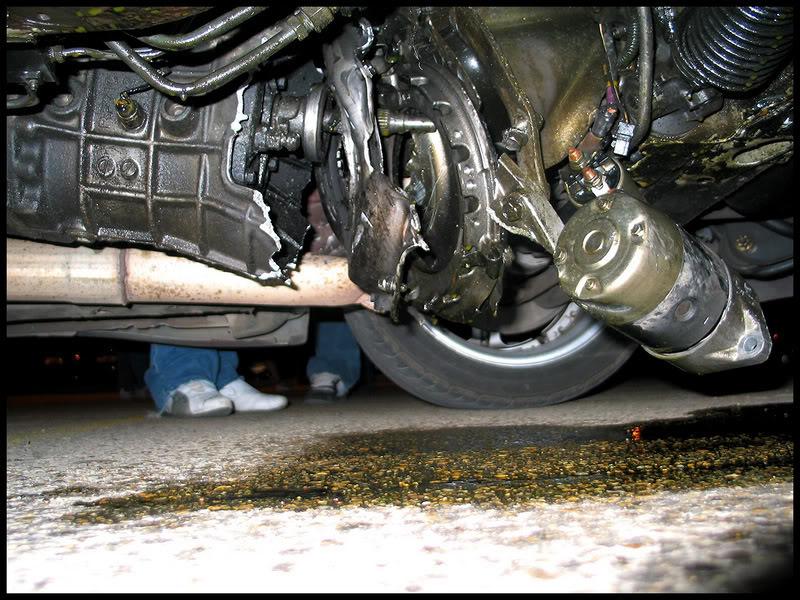Ok I will put up the photos but I want to give a bit of a Back Story First.
I was taken back when my fathers Skoda Octavia had a clutch failure at 16,000km. The car has only ever been driven by himself a 67 year old man, and his wife 66 years old. Both have a history of driving manual cars since the day they got their licenses. In my 37 years of knowing them both I can only recall one clutch failure when I was 5 and my father was towing a caravan up a steep hill in an old Kingswood (and the car had done far in excess of 100,000 km).
VW Australia has claimed that the clutch failure will not be covered by warranty as the failure is caused by user error or abuse (this is what I have verbally been told). They are yet to confirm their position in writing as of the 24th of August 2012. In the mean time my father has no choice but to pay for the clutch as the car has already been 6 weeks at the dealers.

The Photo above shows the catastrophic failure that has occurred to the 16000km young Skoda running a VW/Audi 1.8 liter TSI engine and five speed gearbox with a dual mass flywheel. This car was bought at the end of 2009 as their "good car", the car hardly gets used hence the 16,000km in almost 3 years.
To repair this failure will cost $3500 which is over 10% of the cars original cost.
Before I looked at the parts the dealer stated "I have never seen a Skoda with a clutch failure at or before 16000km". I asked "have you ever seen a clutch failure at 16000km?" he stated "No" (meaning other types of cars).
The flywheel itself shows signs of failure i.e. excessive movement in the dual mass fly wheel. This may be caused due to heat, i.e. heating of the flywheel failing the internal components resulting in excessive play. All clutch systems produce some heat and design should be capable of addressing the environment that it is used in. VW Australia is claiming this is due to driver error or abuse. I find this very difficult to believe since the driver is 67 and has driven manuals his whole life without such failures.

There is plenty of life left in the clutch plate with the friction material well above the rivets

Imagine if disc brake rotors were designed to fail before the brake pads! Customers would not be happy having to constantly replace the rotors while the pads had not worn out.
2 years before he bought this car he bought a manual Nissan pulsar; this car has done in excess of 100,000km and is still on its first clutch. This is what you normally would expect out of a clutch. Keep in mind these are driven by the same people.
I am picking up the parts today to conduct further analysis and get a second opinion before I approach VW under the Trade Practices Act as advised by Victoria Consumer Affairs.
I not only see this as a Consumer Affairs problem, but as a Safety Concern. If pressure plates can come apart like that at virtually idle (when the failure occurred the driver was pulling away from traffic lights) the damage it could cause at 6000rpm would be devastating.
This is what can happen at hi revs, note this is from a skyline.

Anyhow that is my rant, I would like to hear from anyone else that has experienced premature clutch failure.
Roger
I was taken back when my fathers Skoda Octavia had a clutch failure at 16,000km. The car has only ever been driven by himself a 67 year old man, and his wife 66 years old. Both have a history of driving manual cars since the day they got their licenses. In my 37 years of knowing them both I can only recall one clutch failure when I was 5 and my father was towing a caravan up a steep hill in an old Kingswood (and the car had done far in excess of 100,000 km).
VW Australia has claimed that the clutch failure will not be covered by warranty as the failure is caused by user error or abuse (this is what I have verbally been told). They are yet to confirm their position in writing as of the 24th of August 2012. In the mean time my father has no choice but to pay for the clutch as the car has already been 6 weeks at the dealers.

The Photo above shows the catastrophic failure that has occurred to the 16000km young Skoda running a VW/Audi 1.8 liter TSI engine and five speed gearbox with a dual mass flywheel. This car was bought at the end of 2009 as their "good car", the car hardly gets used hence the 16,000km in almost 3 years.
To repair this failure will cost $3500 which is over 10% of the cars original cost.
Before I looked at the parts the dealer stated "I have never seen a Skoda with a clutch failure at or before 16000km". I asked "have you ever seen a clutch failure at 16000km?" he stated "No" (meaning other types of cars).
The flywheel itself shows signs of failure i.e. excessive movement in the dual mass fly wheel. This may be caused due to heat, i.e. heating of the flywheel failing the internal components resulting in excessive play. All clutch systems produce some heat and design should be capable of addressing the environment that it is used in. VW Australia is claiming this is due to driver error or abuse. I find this very difficult to believe since the driver is 67 and has driven manuals his whole life without such failures.

There is plenty of life left in the clutch plate with the friction material well above the rivets

Imagine if disc brake rotors were designed to fail before the brake pads! Customers would not be happy having to constantly replace the rotors while the pads had not worn out.
2 years before he bought this car he bought a manual Nissan pulsar; this car has done in excess of 100,000km and is still on its first clutch. This is what you normally would expect out of a clutch. Keep in mind these are driven by the same people.
I am picking up the parts today to conduct further analysis and get a second opinion before I approach VW under the Trade Practices Act as advised by Victoria Consumer Affairs.
I not only see this as a Consumer Affairs problem, but as a Safety Concern. If pressure plates can come apart like that at virtually idle (when the failure occurred the driver was pulling away from traffic lights) the damage it could cause at 6000rpm would be devastating.
This is what can happen at hi revs, note this is from a skyline.

Anyhow that is my rant, I would like to hear from anyone else that has experienced premature clutch failure.
Roger

Comment